In 2007, then-Russian Ambassador Yuri Ushakov and his wife Svetlana showed us around their weekend escape on the Eastern Shore.
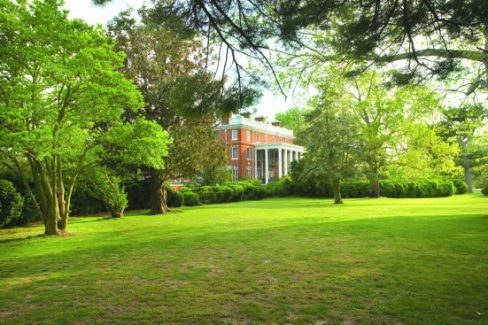
This Russian-owned three story Georgian style house on 45 acres along the Chester River in Centreville, Maryland was closed by the Obama administration on Thursday, December 29, 2016 in retaliation for Russian interference in the 2016 presidential election.
Editor’s Note: In light of President Obama’s December 29 decision to expel Russian diplomats from the U.S. as well as shut down Russian-owned compounds in the New York and on the Eastern Shore of Maryland, we are reposting an “Inside Homes” story from the the Summer 2007 in which we featured the Eastern Shore property and then-Ambassador Yuri Ushakov.

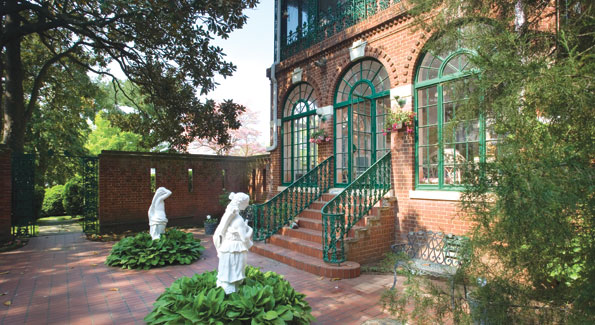
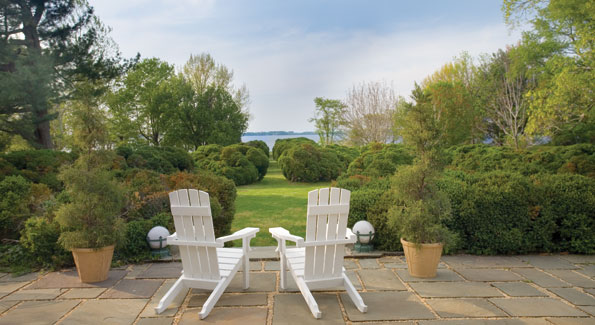
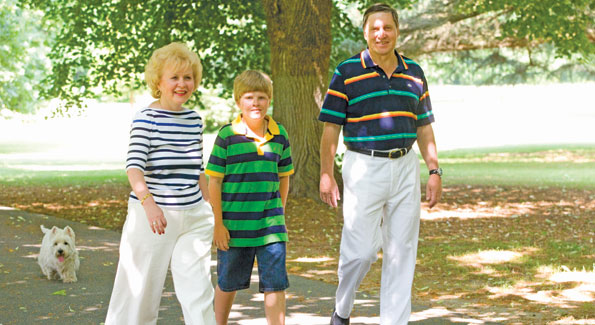
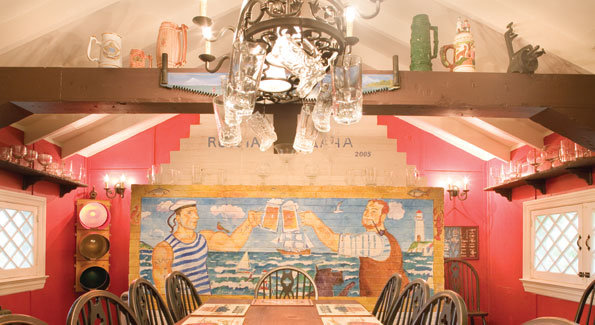
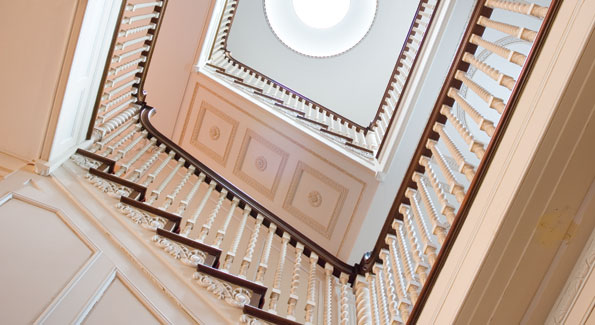

Dacha Sweet Dacha
Russian Ambassador Yuri Ushakov and his wife Svetlana continue the Russian tradition of summer escapes and family bonding on Maryland’s Eastern Shore.
By Deborah K. Dietsch
Photography Gary Landsman
Russians cherish the dacha, a word meaning summer house or cottage. During summers and weekends, millions of them leave the stress of congested city life for the solace of a cabin or house in the countryside. “It’s a Russian tradition,” explains Yuri Ushakov, Ambassador of the Russian Federation. “You will find Moscow empty on Saturdays and Sundays, even in winter. A dacha is a good place to spend time outdoors with family and friends.”
Since arriving in Washington eight years ago, the Russian ambassador and his wife Svetlana Ushakova have kept up this tradition on Maryland’s Eastern Shore. They spend nearly every weekend and longer stretches during the summer at the embassy’s three-story brick dacha fronting the Chester River. While the 1920s Georgian-style house doesn’t exactly look Russian, it offers the couple the same pleasures as their dacha outside of Moscow – spending time with their 10-year-old grandson Misha, grilling shashlik (Russian shish kebob), with friends, or relaxing in the bania, Russian for steam room.
For more than two decades, the Eastern Shore property served as a dacha for Anatoly Dobrynin who was the Soviet ambassador during the Kennedy, Johnson, Nixon, Ford, Carter and Reagan administrations until returning to Moscow in 1986. Dobrynin preserved the Flemish-bond red brick and ornate painted ironwork of the Raskob mansion and kept many of the furnishings that came with the house. Fourteen rental cottages, some built in Finland and shipped to the site, were added for embassy staff.
Much of the original flavor of the house remains intact. The formal living and dining rooms flanking the wide center hall still maintain their teak floors, oriental carpets and impressive crystal chandeliers. An archway on one side of the living room leads to the walnut-paneled library where built-in shelves hold many of the ambassador’s favorite books. Off the other side, a glass-enclosed porch overlooks a brick-walled courtyard where a fountain quietly gurgles. A two-story screened porch, set behind the rear colonnade of the house, provides a river view between nearly century-old boxwoods.
Upstairs, reached by a grand, sky-lit stairway, the second floor is reserved for family. The master suite with its own porch and sitting room adjoins a bedroom reserved for grandson Misha, who is currently attending Russian and British schools in Washington, and his mom, the couple’s 33-year-old daughter, Tatiana. On the third floor, four guest suites are fitted with small kitchens and some of the home’s 13 fireplaces. They share a lounge where Gothic-style wooden doors and wall paneling, and a niche for an altar, now adorned with a Russian icon, still testify to the room’s original use as the Raskob family chapel.
Though the big house remains largely unchanged since the Dobrynin days, its current occupants have added comfortable furniture reflective of their more laid-back style. Many of the spaces feature still life and landscape paintings by Russian artists and decorative Russian touches, including a samovar and porcelain figurines. True dacha living is best represented in the basement where recent upgrades have turned storage spaces into recreation rooms for playing table tennis, shooting pool and watching movies; the now stationary elevator may be turned into a bar. Down the hall is a lounge, where the ambassador and his buddies can share a glass of his favorite red wine after taking a sauna next door. “The steam of bania is the gift of God,” a sign over the doorway to the steam room proclaims in Russian.
This story was originally published in the Summer 2007 issue of Washington Life Magazine.




